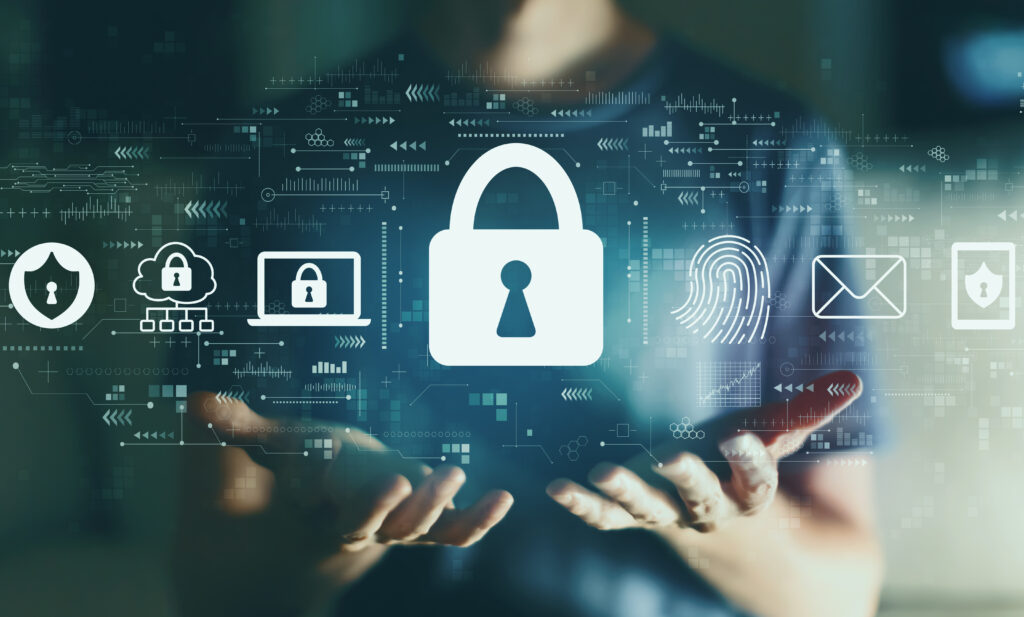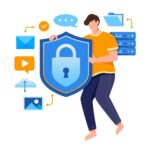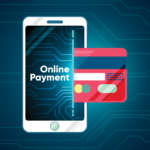In the digital era, safeguarding your monetary information is more paramount than ever. With cyber threats at an all-time high, individuals are seeking foolproof methods to protect their hard-earned money and personal data online.
This post delves into essential strategies for securing your financial details on the web. By adhering to these guidelines, you can ensure that your monetary assets and personal information remain shielded against online predators.
Loyalty to Secure Practices: The Baseline of Digital Security
Maintaining loyalty to secure online practices is the cornerstone of protecting your financial identity and assets. This commitment involves regular updates to your security software, using robust, unique passwords for each of your accounts, and being vigilant about the type of information you share online.
Always opt for multi-factor authentication when available, as it adds an extra layer of security by requiring more than just a password to access your account. This could include a code sent to your phone or a fingerprint scan, significantly reducing the risk of unauthorized access.
Moreover, staying loyal to reputable websites and online platforms is crucial. Make transactions and share financial information only with verified, secure sites—these typically have ‘https’ in their URL, indicating an extra layer of security.
Finally, recognizing and avoiding phishing attempts is key. Be wary of emails, messages, or calls that solicit personal information or direct you to unfamiliar websites. These are often tactics used by cybercriminals to gain access to your financial information.
Recognizing the Importance of Vigilance
Monitoring your bank and credit accounts regularly for unauthorized transactions is an effective way to catch fraudulent activity early. Many financial institutions offer alert services that notify you of any unusual account activity—sign up for these notifications to stay informed.
Additionally, reviewing your credit report periodically can help you identify any suspicious activities that may indicate identity theft. In most countries, citizens are entitled to one free credit report per year from major credit reporting agencies.
It’s also essential to keep your software, including your operating system and any financial applications, up-to-date. Cybercriminals often exploit vulnerabilities in outdated software to gain unauthorized access to users’ personal information.
Educating Yourself on the Latest Cybersecurity Threats
Staying informed about the latest scams and threats in the digital landscape is a crucial aspect of safeguarding your financial information. Follow reliable news sources and online security blogs to stay updated.
Engage in community forums and discussions to learn from others’ experiences and share your knowledge. This collaborative approach to knowledge sharing can significantly improve your ability to detect and avoid potential threats.
Consider enrolling in online courses or webinars that focus on cybersecurity. These educational resources can provide you with a deeper understanding of how to protect yourself against various online threats.
Remember, knowledge is power. The more you know about the tactics used by cybercriminals, the better equipped you’ll be to defend against them.
Finally, don’t hesitate to consult with cybersecurity professionals if you suspect that your financial information has been compromised. They can provide expert advice and support to help you mitigate the situation.
Creating a Secure Financial Ecosystem
Aside from personal vigilance, leveraging technology to create a secure financial ecosystem around your assets can provide an added layer of protection. Consider using financial management tools that offer built-in security features, such as encryption and fraud detection algorithms.
Furthermore, backing up your financial data regularly to a secure location, such as an encrypted external hard drive or a cloud service with strong security practices, can prevent the loss of crucial information due to malware attacks or hardware failure.
Investing in a quality antivirus software and a reliable VPN service can also enhance your online safety by detecting and neutralizing threats and securing your internet connection, respectively.
Conclusion
In conclusion, maintaining loyalty to secure online practices is vital in protecting your financial information against the ever-evolving cyber threats. By being vigilant, educating yourself about potential risks, and leveraging technology to fortify your defenses, you can establish a strong foundation for online financial security. Remember, the responsibility of safeguarding your financial future starts with you—take action today to secure your digital footprint for a safer tomorrow.


